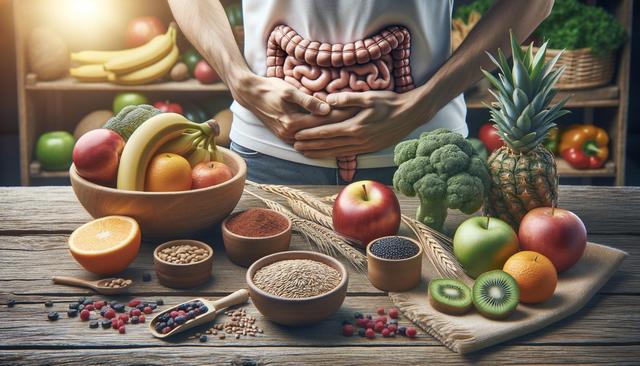Understanding the Impact of Diet on Colitis
Colitis, a chronic inflammatory condition affecting the colon, can significantly impact daily life. While medical treatment is often necessary, dietary choices play a crucial role in managing symptoms and promoting intestinal healing. Certain foods can exacerbate inflammation and trigger flare-ups, making it essential to identify and avoid them. The primary goal of a colitis-friendly diet is to reduce irritation, support nutrient absorption, and maintain a balanced intake of necessary vitamins and minerals. Collaborating with a healthcare provider or a registered dietitian can help create a personalized eating plan that addresses specific needs and sensitivities.
High-Fiber Foods: When Less Is More
Fiber is generally beneficial for digestion, but during active colitis flares, high-fiber foods can be problematic. Raw vegetables, seeds, whole grains, and nuts can irritate the gut lining and lead to increased symptoms such as cramping, bloating, and diarrhea. It is often recommended to limit or avoid:
- Raw leafy greens like spinach and kale
- Seeds found in fruits such as strawberries and raspberries
- Whole nuts and nut butters with added seeds
- Bran-based cereals and breads
Instead, opting for cooked vegetables, refined grains, and smooth nut butters can provide some nutritional benefits without the harsh effects of insoluble fiber. Cooking methods like steaming or roasting can also make vegetables easier to digest, helping to maintain a varied diet even during sensitive times.
Dairy Products and Their Role in Colitis Symptoms
Dairy products can be a hidden trigger for individuals with colitis, particularly those who are lactose intolerant. Even for those without an official diagnosis, inflamed intestines may struggle to properly digest lactose, leading to bloating, gas, and discomfort. Common dairy products to consider avoiding or minimizing include:
- Milk (whole, skim, and low-fat)
- Cheeses, especially soft varieties like brie and cottage cheese
- Yogurt, unless it is lactose-free
- Cream-based sauces and soups
For those who still wish to include dairy-like products, lactose-free alternatives made from almond, oat, or coconut bases can be a suitable option. Fortified plant-based milks are often rich in calcium and vitamin D, supporting bone health without the digestive challenges posed by traditional dairy products.
Spicy, Fatty, and Fried Foods: A Recipe for Flare-Ups
Spices, fats, and fried foods can be particularly harsh on an already inflamed digestive tract. Spicy ingredients like hot peppers and certain spice blends can irritate the gut lining, while greasy and fried foods are harder to digest and can contribute to diarrhea and cramping. Foods that are often problematic include:
- Hot sauces, curries, and spicy salsas
- Fried meats such as chicken wings and fried fish
- Fast food items high in trans fats
- Heavy cream dishes and rich desserts
Choosing baked, broiled, or steamed cooking methods can significantly reduce fat intake. When seasoning meals, using herbs like basil, oregano, and thyme can add flavor without the inflammatory effects associated with spicy foods. Gradually reintroducing mild spices under medical supervision can also help gauge individual tolerance levels.
Building a Supportive Diet for Long-Term Management
While avoiding trigger foods is critical, it is equally important to focus on what to include in a colitis-friendly diet. Emphasizing nutrient-dense, easily digestible foods helps support overall health and reduces the risk of nutrient deficiencies. Beneficial options often include:
- Lean proteins like turkey, chicken, and tofu
- Cooked and peeled vegetables such as carrots and zucchini
- Low-fiber fruits like bananas and melons
- White rice, pasta, and sourdough bread
Hydration also plays a key role; drinking plenty of water and including electrolyte-rich beverages can help prevent dehydration, especially during active flare-ups. Keeping a food diary to track symptoms and dietary intake can be a valuable tool in identifying personal triggers and successful meal strategies. Regular communication with healthcare providers ensures the dietary plan remains effective and adapts to any changes in the condition.
Conclusion: Prioritizing Careful Dietary Choices for Colitis Management
Managing colitis through mindful dietary choices can make a substantial difference in symptom control and overall quality of life. By avoiding high-fiber foods, problematic dairy products, spicy meals, and fatty or fried items, individuals with colitis can reduce inflammation and promote better digestive health. Each person’s experience with colitis is unique, making personalized diet plans essential. With a proactive approach and support from healthcare professionals, it is possible to navigate dietary challenges and maintain a fulfilling, balanced lifestyle.








